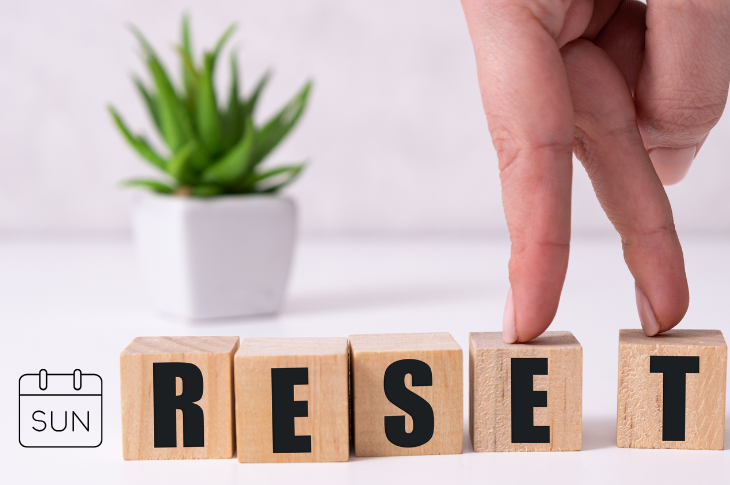
Feeling stressed is something that most people experience at certain times throughout their lives. Stress can stem from any situation, such as a heavy workload, personal conflicts, or health concerns. While stress is very common, feeling it on a regular basis is very unpleasant and may cause additional issues. For example, people with large amounts of stress often have trouble sleeping, which can lead to serious health problems. Luckily, there are many different ways to relieve stress naturally. Different methods work for different people, so it can take some trial and error to find the best solution. It’s important for people to find an effective way to reduce stress before it begins having a negative effect on other areas of their life.

1. Meditate
Meditation is a very popular stress relief method. Many studies have shown its effectiveness in reducing stress levels and increasing mindfulness in those who practice it. There are various types of meditation, and the most suitable option depends on the preferences of each individual. Some people enjoy guided meditation, which often involves a recorded set of instructions. These instructions can include breathing exercises and mind-clearing techniques, alongside calming music or sounds. Others prefer meditating without any external guidance.
Practising meditation typically focuses on one core goal; rewiring the brain to respond more effectively to stressful situations. It not only reduces stress by calming people down in the moment, it also aims to provide tools for future stress triggers. This makes meditation an effective stress management tool for long-term stress relief. Due to this, consistency is an important part of meditation’s ability to provide long-lasting results. Carving out around ten minutes per day to meditate can help people ensure they have the tools to effectively manage their stress when triggers arise in daily life.
2. Spend time with animals
For those who love the company of pets, spending time with animals is a great way to relieve stress. Studies have shown promising results when people physically interact with their pets, whether it be petting, cuddling, or playing. These actions can prompt the brain to release a hormone called oxytocin. This hormone is directly linked to a positive mood. Research also indicates that those who have pets typically have a higher level of overall satisfaction and contentment. This is especially true of people who own dogs, as their need for walks and enrichment can increase the physical activity levels of their owners.
For those who love animals but don’t have pets of their own, there are still ways to use this method. For example, interacting with pets owned by friends or family members can have the same positive effect. If possible, volunteering at an animal shelter also offers a fulfilling way to interact with animals. Alternatively, people could choose to get out into nature to observe animals in their natural habitat. Spending time surrounded by nature is thought to improve mental wellbeing. This is a good option for those with allergies who may have a flare-up if they physically touch an animal.
3. Take up a hobby
A great way to relieve stress is practising self care. Self care refers to anything that contributes to enhanced wellbeing and happiness. Therefore, taking up an enjoyable hobby is a great way to practise self care. The most effective hobby for relieving stress can vary widely between different individuals. Typically, a hobby that aligns with their existing interests is a great place for people to start. However, some people prefer to take up hobbies that push them outside of their comfort zone and allow them to try something brand new.
Some examples of hobbies that can help relieve stress include drawing, playing a sport, learning to play a musical instrument, painting, baking, collecting specific items, photography, and reading. All of these options help a person forget about their stress triggers and focus on something enjoyable and constructive instead. Many people like to use their hobbies as a way to decompress after a long day of work, school, or other potentially stressful situations.
4. Exercise
One of the most common ways that people relieve stress naturally is by partaking in regular exercise. Research has shown that an active lifestyle contributes to reduced stress levels and increased overall wellbeing. In contrast, leading a sedentary lifestyle can cause increased stress and unhappiness, as well as sleep disturbances. Exercise is even thought to help relieve the symptoms of some mental health conditions that are often related to stress, such as anxiety disorders.
For those who currently lead a fairly inactive lifestyle, it’s best to ease into some light exercise at first. For example, nature walks, bike rides, and swimming are great starter options. Other exercise activities that could reduce stress include playing a sport, working out with or without equipment, running, yoga, and dancing. The best way for people to improve their chances of remaining consistent with exercise is to choose an enjoyable activity. If exercise is thought of as a chore, people may try to avoid it. If it’s perceived as an enjoyable pastime, people are more likely to voluntarily stick with it.
5. Write in a journal
For those who find it difficult to express their emotions out loud, writing in a journal can be a great way to release stress. Journaling allows people to put their feelings and thoughts into words. This can make it easier for them to reflect on their main stress triggers. By doing this, people can learn new ways to respond if a similar situation were to arise in the future. Stress is something that can build over time, and if not addressed, can cause major issues. Using a journal as a way to express and release stress helps people avoid bottling up their emotions until they become overwhelmed.
Journaling is a great option for those who prefer not to discuss their issues with others. It provides a private way to address the issues without any external pressure. Many people also find that they can be more honest in a journal entry than they would be in a conversation. Journaling doesn’t have to happen every day, but being consistent can help people identify patterns that they may otherwise be oblivious to. Once a pattern has been identified, people can then take action to break the cycle that is triggering their stress. Journaling also offers a way for people to reflect on their life and feel gratitude for all the positive aspects of it.
Key takeaways
Here are the key points to remember about natural stress relief:
- The most suitable stress relief methods can vary widely between individuals depending on their routine, interests, and other factors.
- Meditation is a good option for long and short-term stress relief.
- Spending time with animals can help improve a person's mood while relieving their stress.
- Taking up a hobby offers an enjoyable and constructive outlet for emotions and allows people to shift their focus from their stress triggers.
- Many studies have shown the positive effects of exercise on stress management and overall wellbeing.
- Journaling offers a private way to express emotions, release stress, identify patterns, and find things to be grateful for.
- People can choose to partake in one, some, or all of these natural stress relief methods.










